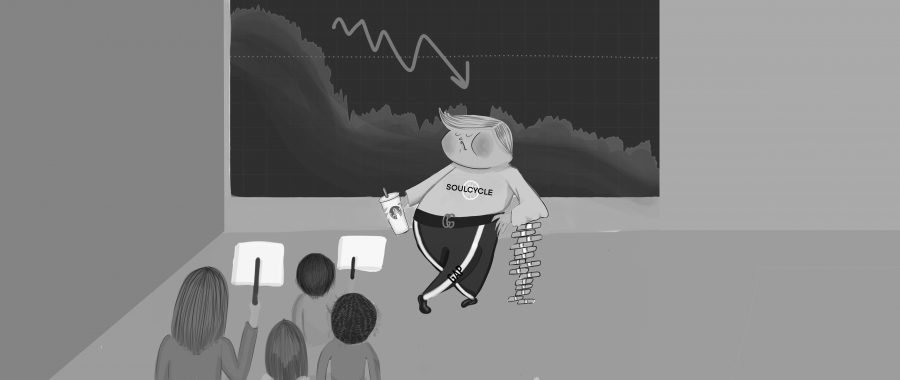America is rooted in liberty, and although many claim that large corporations hinder our freedoms, consumers’ purchasing power illustrates the strength of our democracy. Large corporations still depend on the needs and demands of their consumers, namely us. When a company makes customer service mistakes or is insensitive to social issues, people hold it accountable. Ultimately, citizens exercising their right to protest must claim responsibility for the impact their boycotts have on society. While the choice to boycott is ours, we should remain cautious about how and when to exercise this power.
Late in last year’s Fall and Winter fashion season, Gucci released a black-and-red knitted women’s turtleneck for $890 that covered the wearer’s mouth with large, blood-red lips. The garment resulted in a wave of social media backlash led by prominent celebrity leaders of the African American community— T.I., Spike Lee and Floyd Mayweather. In response, the brand immediately apologized, but the boycotting consumers did not stop there. They demanded a concrete solution, and Gucci created a $5 million Changemakers fund to invest in community-based programs and help provide scholarship opportunities for college students who want to work in fashion.
Gucci’s solution shows that boycotting is an effective form of protest. By rallying together, the black community was able to use their power as consumers to demand change.
A similar situation of social insensitivity ensued when H&M dropped a green children’s hoodie that read ‘Coolest Monkey in the Jungle’ featured on a black model. In both the Gucci and H&M cases, boycotts successfully resulted in official apologies from the companies and discontinuation of the products and advertisements. In both of these examples, boycotting served its purpose by creating progress.
When businesses act out of line, boycotts can lead to changes and, therefore, should be used. They put financial pressure on companies to make changes and raise social awareness. However, boycotts should not be used in all situations. The line must be drawn at boycotting companies for individuals’ personal political alignments. There is a difference between companies who choose to invest their earnings in certain political causes and individuals supporting causes they believe in.
When we choose to boycott, it is a decision that can affect every employee of the company. When Stephen Ross, a primary investor in SoulCycle and Equinox, decided to hold a fundraiser for the Trump administration, many outraged opposers of his administration canceled their gym memberships and spin classes. Just as protesters have the right to express their political opinions, Stephen Ross should have the right to support whichever political campaign he desires without backlash from the other side. The truth is that no company is politically unbiased. If boycotts and protests against companies are sustained long enough, the entire company, including employees, can get hurt. Boycotting the company will not change the beliefs protesters oppose, and it will not stop Ross, for example, from supporting President Trump, ultimately failing to accomplish the initial goal.
Still, boycotts are a great means through which we can take a political stance and stand up against what we know is wrong. Since the power truly does rest in our hands, we have to be cautious of how we use it. The act of boycotting is at the crux of American capitalism; it is the embodiment of the free market steering its course. Boycotts hold companies accountable for their mistakes, and they can be used as a power for good, but we must be weary of when we use them nonetheless.
































